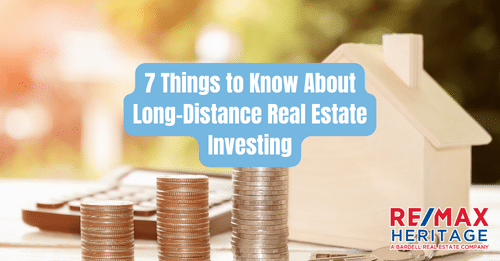
by Elsa Soto | Jan 25, 2023 | Blog, Buyers, Homeowners, Homes, Villas and Condos, News, Real Estate News
Details To Not Miss When Buying a New Home Details To Not Miss When Buying a New Home There are a variety of reasons many homebuyers prefer purchasing a brand-new home instead of an older home. Some love the idea of moving into a home that’s never been lived in...

by Elsa Soto | Jan 24, 2023 | Blog, Buyers, Homeowners, Homes, Villas and Condos, News, Real Estate News
Questions To Ask Before Hiring an Agent Questions To Ask Before Hiring an Agent Ready to buy a house? Then you’ll want to learn a few questions to ask a real estate agent—the go-to pro whose sole goal (at least as far as you’re concerned) is to help make your...

by Elsa Soto | Jan 20, 2023 | Blog, Homeowners, Homes, Villas and Condos, Investment Property in Florida, News, Property Management, Renters
7 Things to Know About Long-Distance Real Estate Investing 7 Things to Know About Long-Distance Real Estate Investing Not all neighborhoods offer properties that can help generate passive income through rent payments, but long-distance real estate investing can...

by Elsa Soto | Jan 18, 2023 | Blog, Buyers, Homeowners, Homes, Villas and Condos, News, Real Estate News
How Long Does a Home Seller Have To Respond To An Offer? How Long Does a Home Seller Have To Respond To An Offer? When you make an offer on a house, you might be wondering how long you can wait until you have to respond. There’s nothing worse than sitting...

by Elsa Soto | Jan 18, 2023 | Blog, Homeowners, Homes, Villas and Condos, News, Real Estate News, Sellers
What Sellers Should Look For in an Offer What Sellers Should Look For in an Offer Congratulations! You’re well on your way to getting as much as possible out of what is likely your largest asset. But when it comes to picking an offer, sometimes it’s important...

by Elsa Soto | Jan 17, 2023 | Blog, Buyers, Homeowners, Homes, Villas and Condos, News
Details to NOT Miss When Buying a New Home Details to NOT Miss When Buying a New Home There are a variety of reasons many homebuyers prefer purchasing a brand-new home instead of an older home. Some love the idea of moving into a home that’s never been lived in...








